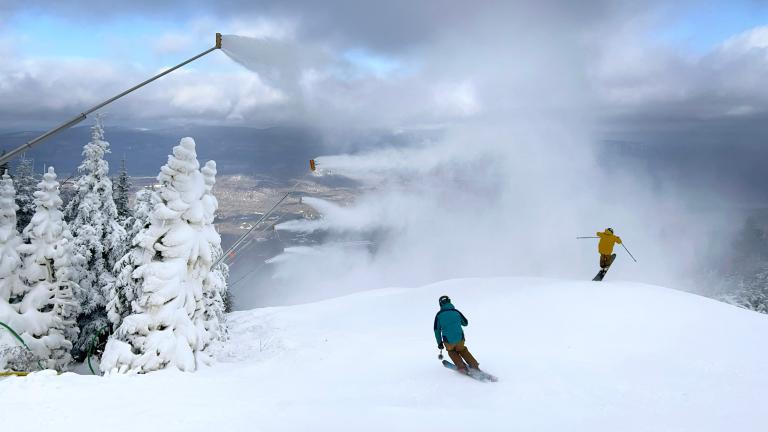 Lee Clarke.Am I the only one mystified — and, OK, horrified — by British Petroleum’s apparent failure to have a contingency plan in place for just the kind of worst-case scenario that happened in the Gulf on April 20? Thankfully not.
Lee Clarke.Am I the only one mystified — and, OK, horrified — by British Petroleum’s apparent failure to have a contingency plan in place for just the kind of worst-case scenario that happened in the Gulf on April 20? Thankfully not.
“Fantasy documents” is how author and sociologist Lee Clarke describes most corporate contingency plans in his book Mission Impossible: Using Fantasy Documents to Tame Disaster. Clarke is a professor at Rutgers University who studies (how perfect?) disasters and organizational failure. He is also the author of six books on breezy topics such as risk, catastrophes, terrorism, and worst-case scenarios.
—–
Q. It seems as though beyond the “blowout preventer,” BP didn’t really have any other contingency plans. Don’t oil companies model worst-case scenarios and make plans for how to handle them?
A. They do it when they’re required to do it, but the Department of the Interior acquiesced to BP’s claim that they were covered, they were ready.
Part of the problem here is that there really is no such thing as an effective response to a large oil spill on the open seas. That’s where we get into this idea of fantasy documents. These documents let everybody get through the day. They provide comfort that risks are under control. The plans are based on assumptions that you can control the uncontrollable, and the truth is there’s nothing much that can be done. But [oil companies] can’t say that. If you create a real worst-case scenario in this situation, you’d have to come right out and say there’s not a whole lot to be done. That creates a big political opportunity for somebody.
[Oil companies] are very sensitive to the possibility of a big one ever since the Exxon Valdez. That was the Three Mile Island for the oil industry. I was at a conference once talking about these contingency plans as fantasy documents. The conference was full of regulators and industry people, and needless to say I went over like a lead balloon. I was standing waiting for a cab afterwards and a guy came up beside me like he was a spy, and he said, sotto voce, “I think what you said was probably right, but we kind of have to pretend that we can do something about it.”
Q. Why don’t federal and state regulators require legitimate contingency plans?
A. Best explanation is that we need energy, so we are all involved in an elaborate charade to pretend that the risks are controllable. There are success stories with fairly small spills on enclosed waterways. The oil stays still and you can get a lot of it out of the water. But on the open ocean, there are no success stories. What oil executive or government regulator could go on TV or stand in front of a press conference and say, “The truth is, this is the risk of doing business, and we’ll do our level best to make sure it doesn’t happen again. We’ll have an investigation, there’ll be fines, we’ll invest more. But life is full of risks so there you go.”?
Q. Does anybody make real contingency plans?
A. The chemical industry does a pretty good job generally. You have to think that the airlines are first rate at this. Pilots and people in the industry can alert the FAA to potentially risky situations without fear of reprisals; they can report things anonymously and do. There are limits to this too, but the regulators are pretty on top of it. Big air carriers are just incredibly safe. [Perhaps because], as [author and accident expert] Charles Perrow likes to say, the elites fly on airplanes all the time.
Q. If you were in charge of regulating the oil industry or running a big oil company, what would you do?
A. I’d like to see open, honest discussions about the risk of these activities. After that kind of political discussion, we may very well decide that we want to take the risks. I get on airplanes and fly. Or we might, as a society, say, “Yeah, we’re going to take that risk, but you, oil industry, are going to have to pay more up front for our letting you take this risk.” More fees to, say, Louisiana, or the places where [their activities] are posing a hazard. After all, the well belongs to the American people. We rent it to BP. And it’s not a bad system. It’s capitalism. It does what it does. But I’d like to see more honest discussion of the risks.
Q. Oil is often cast as a villain, but it’s also critical to the economy, especially in the Gulf Coast states. Can we strike a better balance between oil and its promise of energy, jobs, and money, and conservation?
A. I’m not sure if balance is even the right word. We should be talking about much greater conservation, about how this [event] is another risk of depending on hydrocarbons. [The Gulf spill] should throw into much sharper relief the urgency to deal with climate change. But we don’t have much political leadership pushing in that direction. Who’s beating the conservation drum? It’s very discouraging.
Q. You’re bumming me out.
A. My third book is called Worst Cases. What do you expect?
Q. Are we capable of facing worst-case scenarios and dealing with them? Or are we just creatures of denial?
A. Denial happens, and this is an instance of it. But when I give popular talks about [worst-case scenarios], I ask how many people in the audience have teenagers. People raise their hands. Then I ask, “You know that feeling you get when you hear your teenager getting into the car and you hear the door slam?” And they all know. It’s a feeling of impending doom: “I may never see him again.” That’s worst-case thinking. So it happens.
Q. Except at oil companies.
A. If oil companies are doing it, it’s not very public.




